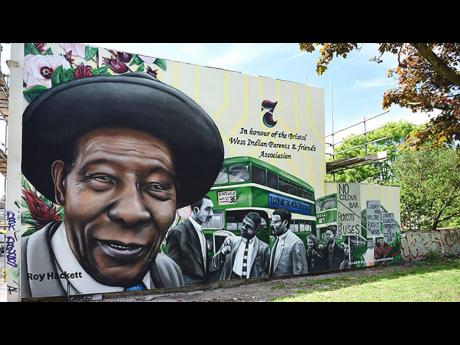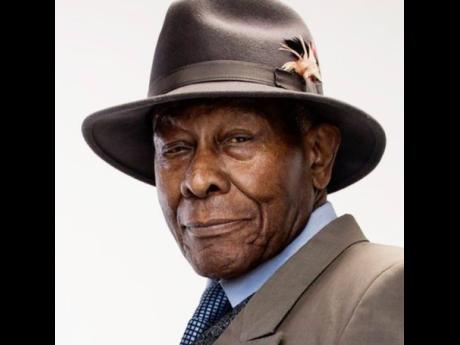Jamaican activist who led UK civil-rights boycotts dies
Jamaica-born civil-rights activist Roy Hackett has been lauded for his unwavering commitment to ensuring that black and Asian minorities in the United Kingdom had equal opportunity in employment and that they were spared discrimination on the grounds of race or ethnicity.
Hackett died on Wednesday aged 93. He is survived by three children, Dawn, Clive, and Laverne, four grandchildren and three great-grandchildren.
Born in Islington, St Mary, Hackett was the first child in his family of four with two brothers and a sister.
He was a bookkeeper prior to his 1952 departure from Jamaica during the Windrush era when hundreds of thousands of migrants relocated to Britain from the Caribbean by ship because of a severe labour shortage following World War II.
His ship docked in Liverpool.
Over the years, Hackett lived in various areas in the UK, including Toxteth-Liverpool, London, Wolverhampton, Nottingham, Somerset, Newport, South Wales and then finally in Bristol, which he made his home in 1957.
Hackett was a founding member of the Commonwealth Coordinated Committee, of which he served as chairperson, in 1962. The organisation was renamed the Bristol West Indian Parents and Friends Association.
The native Jamaican’s motivation for civil activism reportedly stemmed, largely, from the painful experience of his late wife Ena, who applied for a job as a bus operator. Despite having the necessary qualifications, she was turned down once the hiring manager discovered she was not white.
There were no laws at the time penalising employers on racial grounds, therefore, the Bristol Omnibus Company, which operated the buses, refused to hire Black and Asian individuals.
By that time, Hackett became one of the lead organisers of the Bristol bus boycott of 1963, alongside Owen Henry, Audley Evans, Prince Brown, and Paul Stephenson, which lasted four months.
This was the first of its kind in Britain.
OUTRIGHT DISCRIMINATION
The widespread unrest, which gathered national attention, then forced the company to change its policies. Two years later, it paved the way for the passage of the Race Relations Act of 1965 and 1968 in parliament.
His daughter Emma stated, in a press statement issued to The Gleaner, that during his time in Bristol, window sill placards declaring “no blacks, no Gipsies, no Irish, and no dogs” were frequently posted.
“Even when he called at houses displaying no signs, the owners would frequently slam the door in his face before he had even opened his mouth,” she said.
In 1965, Hackett was a member of the Bristol Race Equality Council, which started off as a community group based at Colston Hall and was shut down in 2005. It was the nation’s oldest race equality council.
In 1993, he was awarded for his exceptional community service by the Jamaican high commissioner. That year, the Queen visited Bristol Cathedral and presented him with small silver coins known as ‘maundy money’ in recognition of his good deeds.
VERY PROUD JAMAICAN
A close family member of Hackett’s, who did not want to be identified, told The Gleaner that he wore his patriotism on his sleeve, describing him to be “a very proud Jamaican”.
She added that he was a constant source of inspiration who greatly influenced her upbringing by instilling the values of speaking up for herself and standing her ground in the face of adversity.
“He was consistently someone that would encourage me to push to anything I want. Something he would say to me ... if I had an issue [is], ‘Stand tall, you put your back up, and you stand tall and firm and you put on your army boots and you walk until you succeed,’” she recalled.
The family, she said, is grieving his death deeply.
By 2020, the lord mayor and Marvin Rees, the mayor of Bristol, requested that Hackett hoist the new Windrush flag in front of the city council and city hall.
He was awarded an MBE (The Most Excellent Order of the British Empire) for his community service that same year and received a congratulatory letter from the mayor of Bristol.
The late activist studied and earned his social work credentials at The University of Bristol.
Hackett’s philosophy was to “always try your best and make the most of your education. Education is a way of proving that you can do well and it also enables you to develop. Think about your own future children and how to make a better place for them too”.


